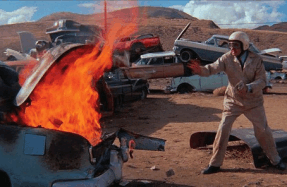Répertoire des villes disparues
o appreciate the historical scope and layered references of Denis Côté’s , we would do well to begin before the film does, at a time when some of the apparitions that haunt Irénée-les-Neiges, the film’s fictional northern Québec setting, would have existed as flesh and bone. Between 1944 and 1959, Québec Premier Maurice Duplessis inaugurated a regime of anti-labour and pro-Catholic politics now referred to as (“the Great Darkness”), which saw a favouring of rural economies over urban industries and state-sanctioned Catholicism over secular forms of governance and education. Along with these publicly enforced prejudices against an increasingly urban, industrialized, and diverse society came an enduring interest in a literary mode that came to be known as the : novels, often romances, that evoked nostalgia for an agrarian community organized around the soil, the Church, and the family.
You’re reading a preview, subscribe to read more.
Start your free 30 days





